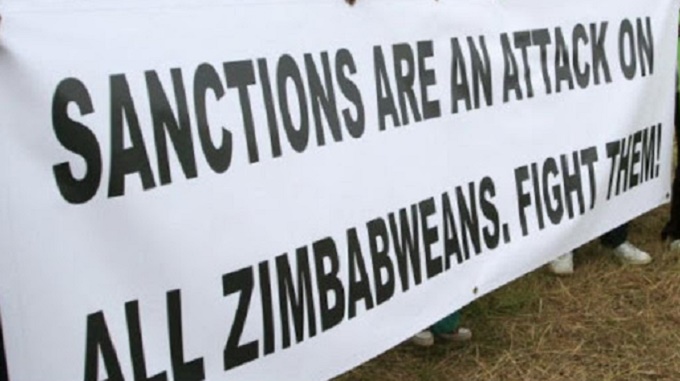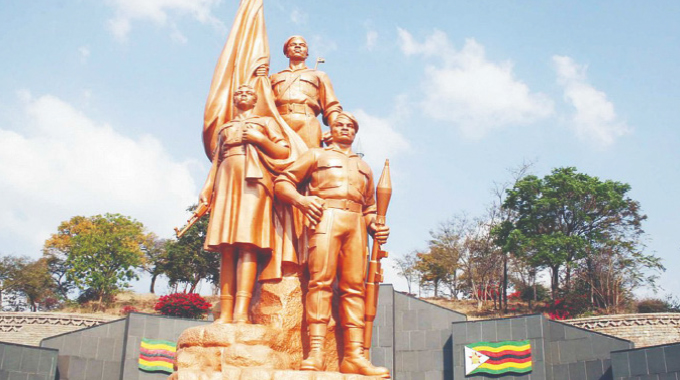Unity of purpose needed to build a better Zimbabwe

Tafadzwa Chibukwa
THE illegal sanctions imposed on Zimbabwe by the West have been frustrating economic growth through constrained investment, slowdown in industrial operations and limited trade prospects, among other factors.
To fight them, Zimbabweans must unite and pull in one direction to overcome the challenges presented by the punitive economic embargo.
President Mnangagwa is constantly urging the nation to focus on the future and continue working hard to build the country.
Through unity and leaving no place and no one behind, the effects of the sanctions can be overcome.
Sanctions have caused a dent on the economy as a lot of companies that used to operate in the country have closed shop, with some relocating to other countries in the region.
While many may consider it better to relocate and run away from their motherland to look for greener pastures abroad, it is only the mother country that suffers.
What is needed is unity of purpose among Zimbabweans to work together, gather the necessary resources and skills and build a better Zimbabwe.
It is futile that indigenous people of the country sideline their own homeland and choose to go and benefit another country with the same skills they could have used to benefit their country.
After all, ilizwe lakhiwa ngabaninilo, nyika inovakwa nevene vayo.
While many believe sanctions are targeted at individuals, the fact is that they affect everyone.
Government owned companies such as the Industrial Development Corporation (IDC) were affected by the sanctions.
In 2013, the US Treasury’s Office of Foreign Assets Control (OFAC) seized US$2 million which the company had secured from the PTA Bank as a loan to retool one of its subsidiaries, Olivine Industries. Other companies that suffered similarly include CBZ Bank which was fined US$385 million by OFAC in 2017 for handling some transactions on behalf of ZB Bank, which was under sanctions.
Given this evidence, claiming that sanctions are targeted at certain individuals would be grossly wrong.
The country must retain its sovereignty and be able to create opportunities for its people to develop.
It is important for Zimbabweans to refuse to be misled by the West and its local lackeys into believing that their socio-economic woes are caused by corruption as the United States shamelessly claims.
For two decades, Zimbabwe has been under sanctions imposed by the UK, USA, Canada, Australia and the EU in response to the land reform programme that the Government undertook through Amendment 17 of the Constitution which allowed expropriation of land without compensation.
The Zimbabwe Democracy and Economic Recovery (Zidera) Amendment Act (2018), which targeted 141 individuals and 56 companies, further places financial restrictions that block debt cancellation to Zimbabwe and bars financial institutions like the International Monetary Fund, World Bank and Africa Development Bank from extending any loans to the country without the approval of the US President.
The restrictive measures placed by the EU include the suspension of budgetary support to Zimbabwe, suspension of financial programmes as well as an embargo on the sale, supply, transfer of arms, assistance or training related to military service as well as a travel ban and freezing of assets to individuals that have been placed on the so-called targeted sanctions.
The sanctions imposed on Zimbabwe exist in the form of targeted sanctions as well as multilateral financial restrictions. Some Government officials, State owned enterprises and institutions have been sanctioned.
Articles 39 to 42 of the United Nations Charter clearly state that economic embargoes can be used in the conduct of international relations on the condition that they are authorised by the United Nations Security Council (UNSC). But, sanctions imposed against Zimbabwe were passed outside this multilateral forum.
International norms which must be respected in the conduct of international engagement, foreign policy and diplomacy, that is non-intervention and state sovereignty are choked by these sanctions.
The embargo further contradicts the basic international principles of the United Nations Charter because they deprive and violate innocent civilians’ right to personal development.
While the country has been doing considerably well despite the sanctions, the effects cannot be ignored.
The implications of the sanctions have been costly. They have brought bad publicity and restrained the country from harnessing massive investments.
Zimbabwe’s access to international credit markets have also been blocked by the imposition of sanctions so is the country’s balance of payments position.
According to research, Zimbabwe lost an estimated US$42 billion and another estimated US$4,5 billion annually for more than two decades. Another staggering US$2 billion was lost in IMF, World Bank and African Development Bank loans.

These sanctions are not only a challenge to Zimbabwe but they also affect regional integration in Southern Africa at large and so they must go.
In a recent statement, Sadc Chairperson, Félix Antoine Tshilombo Tshisekedi, President of the Democratic Republic of the Congo said Sadc is deeply concerned at the claim that the sanctions are of a “targeted nature” and are aimed at unilaterally punishing a few individuals.
“The reality is that there is a spill-over and contagion effect on the rest of the country, in particular by imposing a blanket negative perception about Zimbabwe across the world, in particular in the sensitive global financial markets,” he said.
President Tshisekedi said this perception results in the country being unable to attract much needed foreign direct investment, lines of credit, and other financial services that are essential to the socio-economic development of the country.
“This is more concerning given the need for rapid global recovery from at least two years of the socially and economically crippling Covid-19 pandemic which has now been compounded by a general rise in inflation across the world. Zimbabwe, like most developing countries, is particularly vulnerable to these trends and the unilateral sanctions worsen the plight of her economy.”
He said Sadc is committed to the consolidation of democracy in Southern Africa, and indeed, elsewhere in the world.
“Zimbabwe is expected to hold regular national elections in mid-2023. In this context, Sadc appeals to those who have imposed sanctions on Zimbabwe to give space to the citizens of the country to exercise their democratic rights and not use sanctions as a covert mechanism to effect regime change. Sadc is also committed to the spirit of multilateralism, in this regard, notes that sanctions imposed against a fellow nation in the family of humanity must be made in accordance with international law. In this context, Sadc welcomes the Report of the Special Rapporteur on the negative impact of unilateral coercive measures on the enjoyment of human rights, Alena Douhan, on her visit to Zimbabwe which recommended lifting unilateral sanctions in line with the principles of international law,” said President Tshisekedi. – @Sagepapie14












Comments